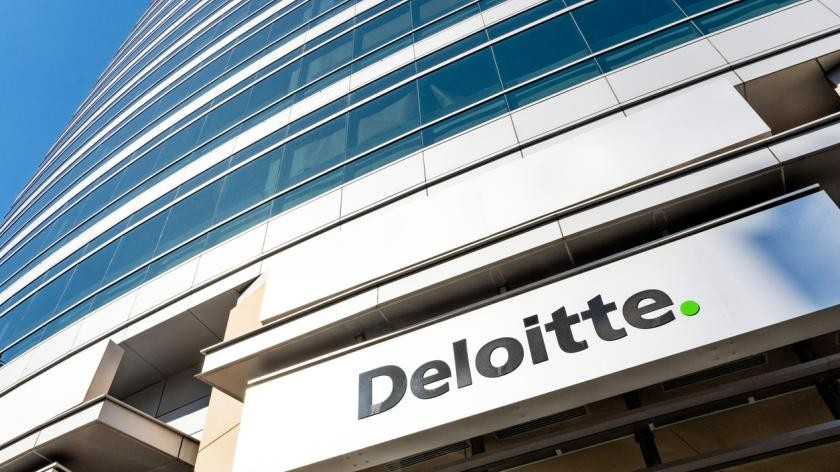THREE LARGE FIRM AUDIT PROBES INDICATE 'SYSTEMATIC FAILURE'
Problems at the top and middle of the audit market have once again surfaced through a trio of probes announced by regulatory enforcement officials.
 Source: istock
Source: istockA glut of investigations into suspect audits have emerged as the government continues to plot its reform of the misfiring market.
The Financial Reporting Council (FRC) is investigating Mazars over its audit of clothing brand French Connection for the financial year ending January 31, 2020.
On the same day, the regulator announced an investigation into the audits of music streaming service Akazoo carried out by Crowe for the years ended December 31, 2016, 2017 and 2018.
Deloitte is also reportedly under investigation by the ICAEW for an audit of multinational conglomerate Essar Oil UK, according to the Financial Times. The Big Four firm is alleged to have raised concerns about Essar’s governance far later than expected, the FT said, citing documents it has seen.
An ICAEW case manager wrote that “given the contents and timing of the resignation statement [relative] to the audit report issued I do have some potential concerns regarding the audit report issued”, per the FT. Deloitte has not commented on the allegations.
“The recent spate of audit failures and investigations are no surprise given the neglect of audit quality which has been systemic and compromised by commercial motives of what ought to be ‘public interest’ protecting professional firms,” said Professor Atul K Shah, City University accounting expert. “Watch out for even more failures and big ones too,” he told AccountingWEB.
Dressing down
Mazars said it was cooperating with officials in the FRC enforcement division but declined to give any further comment on the matter. The decision to open a case into French Connection’s financial statements was made at a meeting of the FRC’s conduct committee,
The clothing brand recently agreed a £29m takeover by its second-biggest shareholder, north-east entrepreneur Apinder Singh Ghura, following a torrid three years. The firm began exploring a buyout in 2018, but multiple talks fell through and eventually it started to close stores and pare back operations. It replaced previous auditor KPMG with Mazars in April 2019, and the probe will cover the first year of statements approved by the challenger firm.
Last year further attempts at a sale collapsed, as the firm declared it was running out of cash. Potential buyers came forward in early 2021, and in February, Frasers Group, owned by retail billionaire Mike Ashley, sold a 25% share in the fashion company.
In September, Ghura went public with his desire to buy French Connection three weeks before the FRC said it was looking at Mazar’s audits covering a disruptive period in the once high-flying brand’s history.
Face the music
Akazoo, incorporated in Luxembourg, has never been far from controversy since its formation in 2010. In 2019, it went public via a special purpose acquisition company (SPAC) merger with Modern Media Acquisition Corp. (MMAC).
The structure of the deal allows private businesses to float publicly without undergoing the kind of due diligence scrutiny carried out in an Initial Public Offering (IPO).
SPACs are shell companies created with the sole purpose of seeking a company to merge with and then go public, and if the deal is not finalised within a certain timeframe, money is returned to investors. A year after the deal, the now publicly traded on-demand streaming service was sued for securities fraud by the U.S. Securities and Exchange Commission (SEC) in September 2020.
Short-selling reports accused Akazoo of fraud, and an internal investigation along with a parallel review was carried out by the US securities regulator. In May 2020, Akazoo disclosed in a filing with the SEC that a probe into the claims “determined that former members of Akazoo’s management team and associates defrauded Akazoo’s investors, including the predecessor SPAC acquiring entity [MMAC], by materially misrepresenting Akazoo’s business, operations, and financial results as part of a multi-year fraud.”
Akazoo said aspects of its financial statements “should no longer be relied upon due to the possibility that such financial statements contain material errors”.
An internal investigation agreed with the findings that investors had been scammed, and said Akazoo “had only negligible actual revenue and subscribers for years and that former members of Akazoo management and associates participated in a sophisticated scheme to falsify Akazoo’s books and records, including due diligence materials provided to MMAC and its legal, financial, and other advisors in connection with the Akazoo business combination in 2019.”
Akazoo was delisted by Nasdaq in June 2020, and in April 2021 it reached a partial settlement in the aggregate amount of $35m. The deal is a partial settlement because claims remain pending against other defendants. The Crowe audits cover the three years leading up to the reverse merger sale process.
Slow to move
Deloitte dropped Essar, which operates Stanlow, the UK’s second-largest oil refinery, as a client in 2030 citing governance concerns over the company’s audit strategy.
However, it allegedly did not alert regulators when it gave Essar’s books a pass for 18 months to September 2019.
“Deloitte gave EOUK a clean audit opinion in July 2020, as did a separate independent auditor in 2021,” said an Essar Oil UK spokesperson. “EOUK has taken extensive action to address the governance concerns raised by Deloitte more than a year earlier, including the appointment of an additional independent director and a commitment to the Wates Corporate Governance Principles."
The ICAEW said: “Our disciplinary byelaws preclude us from commenting on whether any matter may or may not be the subject of consideration by our professional conduct department. Where such consideration results in disciplinary action being taken then a public announcement will be made.”
The ICAEW is also assessing whether Deloitte missed a deadline for filing the reasons for its resignation at Companies House, according to the FT. It is also reportedly reviewing how Deloitte dated documents when it did file them almost six months after resigning.
Resignations for governance concerns require auditors to file a statement of reasons at Companies House within 28 days. Deloitte filed a statement in November 2020, but it was deemed unacceptable and returned, according to a Companies House response to a Freedom of Information request, seen by the FT.
The second statement was not filed until April 2021, almost six months on from Deloitte’s resignation.
Last month, Deloitte announced that its partners would receive more than £1m in average pay for the year to 31 May, despite managing through a year of record-breaking sanctions. The Big Four firm was fined £15m and had to pay more than £5m in costs for its conduct during audits of software company Autonomy.
No simple solution
The UK’s audit industry is facing a structural overhaul following years of under-performance and the failure of large businesses such as BHS and Carillion. A 16-week consultation carried out by the government considered forcing FTSE350 clients of Big Four firms to instead use mid-tier accountancies.
Using market share caps on the Big Four was proposed to improve competition.
However, in a virtual conference held by the ICAEW this week, FRC chief executive Sir Jon Thompson questioned the likelihood of the government making such drastic changes.
There is “no single, or simple, solution to reform the audit industry”, he said, noting the FRC had asked for the power to apply both market share caps and managed shared audits on UK accountancies.
Source: https://accountingweb.co.uk
---
 WinWin Audit Firm
WinWin Audit Firm















